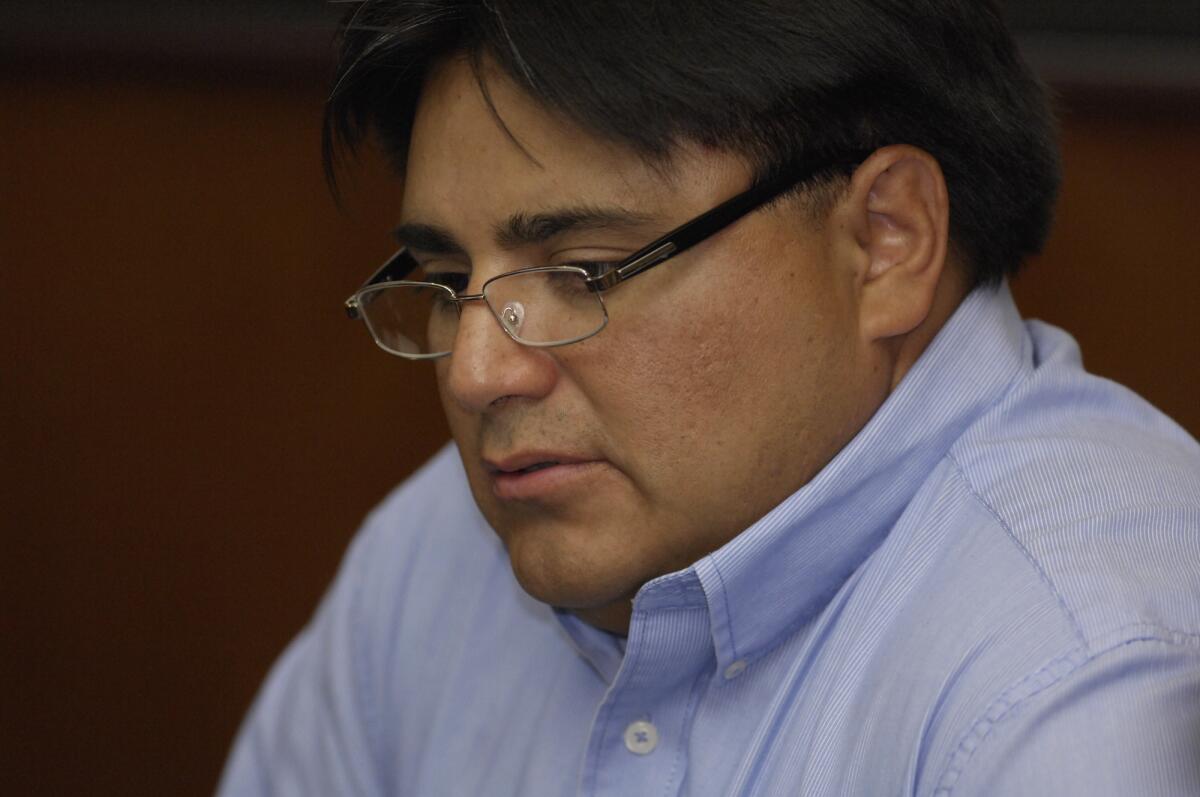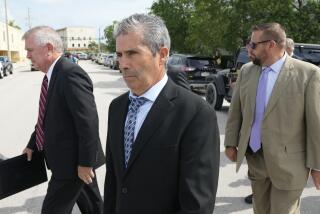Ex-Coliseum technology manager pleads not guilty in corruption probe

- Share via
A former technology manager for the Los Angeles Memorial Coliseum surrendered to authorities Thursday and pleaded not guilty to criminal conflict of interest.
Leopold Caudillo Jr., one of six men charged last week in the Coliseum corruption scandal, is accused of directing more than $20,000 in stadium business to a company he controlled. Caudillo was in Russia when he and the other defendants were named in a 29-count indictment.
After entering his plea at a downtown courtroom, Caudillo said, “It’s craziness....I hope everything goes well for everyone.”
He declined to comment on the charge against him. He could face a three-year sentence if convicted, according to the district attorney’s office.
Caudillo lost his job in October, shortly after The Times reported that the company received about $30,000 in Coliseum business.
On Wednesday, former Coliseum General Manager Patrick Lynch pleaded guilty to a single count of conflict of interest, avoiding a trial and possible lengthy prison term on several other charges. As part of the plea deal, Lynch will serve no jail time but must return to the taxpayer-owned stadium $385,000 in payments he received from a contractor in an alleged kickback scheme.
Three other defendants have pleaded not guilty to a variety of charges that include bribery, embezzlement and conspiracy. They are former Coliseum Events Manager Todd DeStefano and rave promoters Pasquale Rotella and Reza Gerami, chief executives of Insomniac Inc. and Go Ventures Inc., respectively.
The remaining defendant is Tony Estrada, the contractor accused of making the payments to Lynch. Prosecutors believe he is in Panama and say they do not know if he will return voluntarily.
The case grew out of Times reports on financial irregularities at the Coliseum and companion Sports Arena. Those included about $2 million the promoters allegedly paid private companies owned by DeStefano for helping them stage concerts at the properties while he oversaw them in his government post.
DeStefano is accused of promising to keep costs low for the rave companies in return for the payment. And, according to court documents, even after the drug overdose death of a 15-year-old girl who attended a Coliseum rave in 2010, DeStefano became “a tireless advocate for their continued use of the Coliseum” and a “mole who provided them inside information.”
DeStefano is also accused of “tricking” companies that filmed at the stadium complex or sold beverages there into making payments to his private company, Los Angeles Coliseum Events, instead of the stadium.
If convicted on all counts, DeStefano faces a maximum prison sentence of 25 years; Gerami,15 years; and Rotella, more than 13, prosecutors said.
More to Read
Sign up for Essential California
The most important California stories and recommendations in your inbox every morning.
You may occasionally receive promotional content from the Los Angeles Times.











